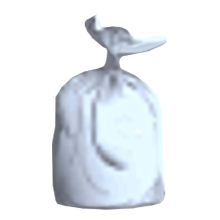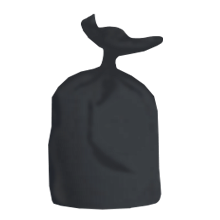Thursday 21 October 2021
The Civil Contingencies Authority and Public Health officials are calling on the community to take additional precautions to prevent the spread of COVID-19.
Recent days have seen a further rise in cases and more hospital admissions. Concerns remain that in some cases people are not following some of the central guidance such as staying at home when unwell, reporting symptoms, good hand hygiene and respiratory etiquette.
The CCA is asking Islanders not to be complacent, despite the high levels of vaccination in the Bailiwick. COVID-19 continues to pose a risk if the number of cases is allowed to spread quickly and widely enough.
The CCA is making two principal recommendations today.
The first recommendation is that everyone (of secondary school age or older) collect a pack of the Lateral Flow Tests which are being provided for free, and use them:
- To regularly test themselves to check if they have the virus - it is recommended they take two tests per week, every week.
- Before attending an event or meeting in a crowded or poorly ventilated place, or somewhere where social distancing or the wearing of a mask is not possible or practical;
- If they are asked to do so by the Contract Tracing Team as they have been identified as a contact of a case;
- Before visiting a vulnerable person, for example someone living in a Care and Residential Home;
- If asked to do so by Public Health Services or a Health or Care provider.
This will help identify positive cases before they can spread. But this is not an alternative to staying at home and reporting your symptoms to the Clinical Helpline if you feel unwell.
The second is that face coverings are strongly recommended in settings:
- Where physical distancing is not possible
- Where there is poor ventilation;
- Where there are close crowds, or where individuals need to work in very close proximity with colleagues, service users or customers.
Some health care settings may be among those and will want to ask visitors to wear a face covering. Please check with the health care provider before attending.
Businesses that feel it is appropriate for them to ask staff or customers to wear face coverings because of the type of setting in which they operate, can do so and customers are urged to respect these requests.
Similarly, for some individuals wearing a face covering is not possible. Islanders will remember that earlier in the year, during the second lockdown, a 'sunflower lanyard' scheme was introduced place and these can still be collected from various locations or downloaded from the States' COVID-19 website. More details can be found at https://covid19.gov.gg/guidance/facecoverings.
Dr Nicola Brink, Director of Public Health said:
"We have managed the level of COVID-19 cases in recent months really well as a community, and that isn't down to luck and it isn't because COVID has gone away. It is down to each of us having taken responsibility as individuals, and followed the good practice we've had drilled into us over the past two years. But now I am concerned that we're seeing the single most important measure we can all take - staying at home and reporting our symptoms when we're unwell - not being followed by some. I understand this is difficult and inconvenient, it can interrupt our plans and make it very hard to do our jobs. But it's also critical to keeping the number of cases at a level that we can manage, protecting the most vulnerable in the community, as well as not putting our health service under more pressure than it can cope with. So we're stepping up the recommendations, in the hope that regular lateral flow testing and the use of masks in some settings will help us regain the ground that we're starting to lose and stop a manageable number of cases getting out of control.
We should also be thinking about the other guidance that we're already used to, and one that I'd like to stress today is respecting people's personal space. Don't crowd around other people or bunch up next to them in queues, when you don't need to.
All of this is alongside other measures such as encouraging islanders who have not been vaccinated to come forward. Furthermore, when you are offered a booster dose, please do take this up.
We also need to consider that SARS-CoV-2 is primarily transmitted between people through respiratory particles (droplet and aerosol) and indirect contact through fomite transmission (contact with contaminated surfaces). So when someone with COVID-19 breathes, speaks, coughs or sneezes, they can release droplet or aerosol particles containing SARS-CoV-2. A person can be infected when these particles are inhaled, or come into contact with the eyes, nose or mouth. It is also important to note that transmission risk is highest where people are in close proximity (particularly within 2 metres), particularly in poorly ventilated indoor spaces.
We have recently introduced an on-island sequencing capability. This means we can analyse samples here in Guernsey to see exactly what strain of the virus we're dealing with. It won't come as a surprise to Islanders that it is the Delta strain we're seeing in all cases. But we do know the Delta strain is especially effective at 'aerosol' transmission. That is one of the reasons why the recommendation for face coverings is the right one, right now, made all the more important as we spend more time indoors as winter approaches. Face coverings are a regular part of life in many other jurisdictions who continue to find them a highly effective tool in helping to keep levels of COVID-19 down."
Deputy Peter Ferbrache, Chair of the Civil Contingencies Authority said:
"Today we are making a recommendation that together, all of us in the community, step up our efforts to limit the spread of COVID-19. We talk about living with the virus. But living with the virus does not mean living how we did before the virus. It means taking sensible precautions, taking responsibility for ourselves and ensuring we don't spread the virus to others. We are slipping, and that is not a criticism of anyone in our community. No one can be blamed for being completely fed up with the pandemic and the impact it's had on our lives in big ways and small. But the virus doesn't care if we're fed up. If we give it the chance to spread, it will do so and it will get to that very small number of people who still become seriously ill despite our high vaccination levels.
Some will ask why we continue with relatively open borders while calling for more vigilance locally. They will say borders never should have opened, or that they should close again now. Firstly, this will not bring down our cases, the majority of cases identified now are from those coming forward with symptoms and through contact tracing, not travellers. But more than that, closing the borders was never a long-term solution to COVID-19. It was a temporary measure until we were able to vaccinate all those eligible and willing in our community, but we have done that. Keeping the borders closed for a community that is very highly vaccinated is the same as saying the borders will stay closed forever and that clearly isn't an option.
There is no getting away from the reality that we must learn to live responsibly with COVID, and that means that it falls upon each of us to do everything we reasonably can to protect each other, especially the most vulnerable in our Islands."













